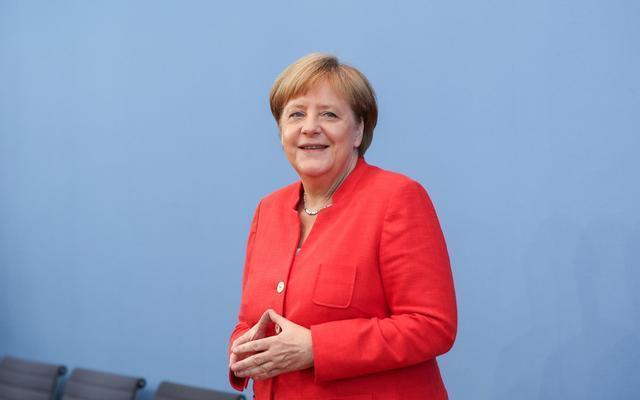Merkel is leaving. Although many in the media praised her for bringing Germany a "golden age" comparable to the 1920s, with great achievements in domestic and foreign affairs, however, there are also many voices that she is "too obsessed with the stack and should have stepped down long ago".

Merkel's criticism comes from many sources and focuses on different contents, and indeed points out some of the difficulties she has left for her successor. After all, "the situation is stronger than people", in the face of "a century of unprecedented changes", long-sleeved dancing like Merkel, it is inevitable that there are left and right, unable to do so:
First, the stability of The Political Situation in Germany is being tested.
By hyping up the refugee crisis, ultra-right nationalist parties are rapidly emerging in Germany and within the European Union, and are constantly grabbing political space. With 12.6% of the vote in the 2017 general election, the AfD became the third largest party in parliament, the first time a far-right party entered the German parliament after the war; at present, the party has entered the parliaments of all 16 German states, from the federal to the state level, and has become an important force in German politics.
Correspondingly, the ability of Germany's mainstream parties to dominate the political agenda has been weakened. At the same time, Merkel's CDU not only has serious differences with its "sister party" CSU governing philosophy, but also the internal rift in the party is also increasing, lacking a strong leader.
In the "post-Merkel era", German politicians really need to take comprehensive measures to effectively suppress the actions of ultra-nationalist parties and avoid the scene in the comedy satire film "Hitler is Back" from becoming a reality.
Second, Germany's economic development is quite worrying, and the people's anxiety is growing.
In the short term, the German economy under the "export-led model" is greatly affected by the external economic, trade and security environment. Factors such as Brexit, the Sino-US trade war, the impact of the new crown epidemic, and the lack of economic growth in many emerging countries have a direct impact on the German economy.
In the long run, what worries the German government and the people even more is the huge challenge facing the competitiveness of German industries, that is, the so-called German recession will fall into a "technological recession". In the past 10 years, that is, during Merkel's administration, Germany's long-term macro-economy of good and beneficial to the people has become a "double-edged sword", resulting in insufficient sense of crisis in the German government and society, so that it has failed to effectively promote reform, increase investment in innovation and research and development, and implement industrial upgrading.
Today, the competitiveness of German infrastructure facilities has been declining for many years, and the manufacturing and small and medium-sized enterprises that Germans have long been proud of have failed to keep up with the pace of upgrading in time; they are obviously lagging behind in the "new tracks" such as 5G, new energy vehicles and artificial intelligence, especially the lack of promotion of the digital economy, and there is a risk of obsolescence in the wave of the new industrial revolution triggered by the Internet.
In addition, the problem of "unbalanced economic development and distribution", which is the "old and difficult" problem after German reunification, still exists, and it has buried hidden dangers in society. The gap between east and west germany remains enormous, with people in the east facing low wages, low employment rates and high dropout rates among young people, which in turn has contributed to the rise of populism.
Third, the international situation facing Germany is still not optimistic, and there are still variables in foreign policy decisions.
As Bismarck warned, "The strong will be jealous." After a series of crises have initially passed, Germany's strong performance in it (especially in the debt crisis and refugee crisis) has aroused the concerns of other EU member states; voices about the "German question" and "German Europe" have been put on the table again. This is reflected in Merkel's snubbish reception in Poland during her diplomatic journey before she was crowned.
The Biden administration's "America First" policy without the "America First" slogan has repeatedly tested the relations between Europe and the United States and Germany.
What is more worth observing is whether Merkel's successor can suppress the impulse of "standardization" and even "democratic transformation", abandon the shallow prejudice and even unwarranted fear of China by some politicians in Germany, and continue to steadily and pragmatically promote Sino-German relations.